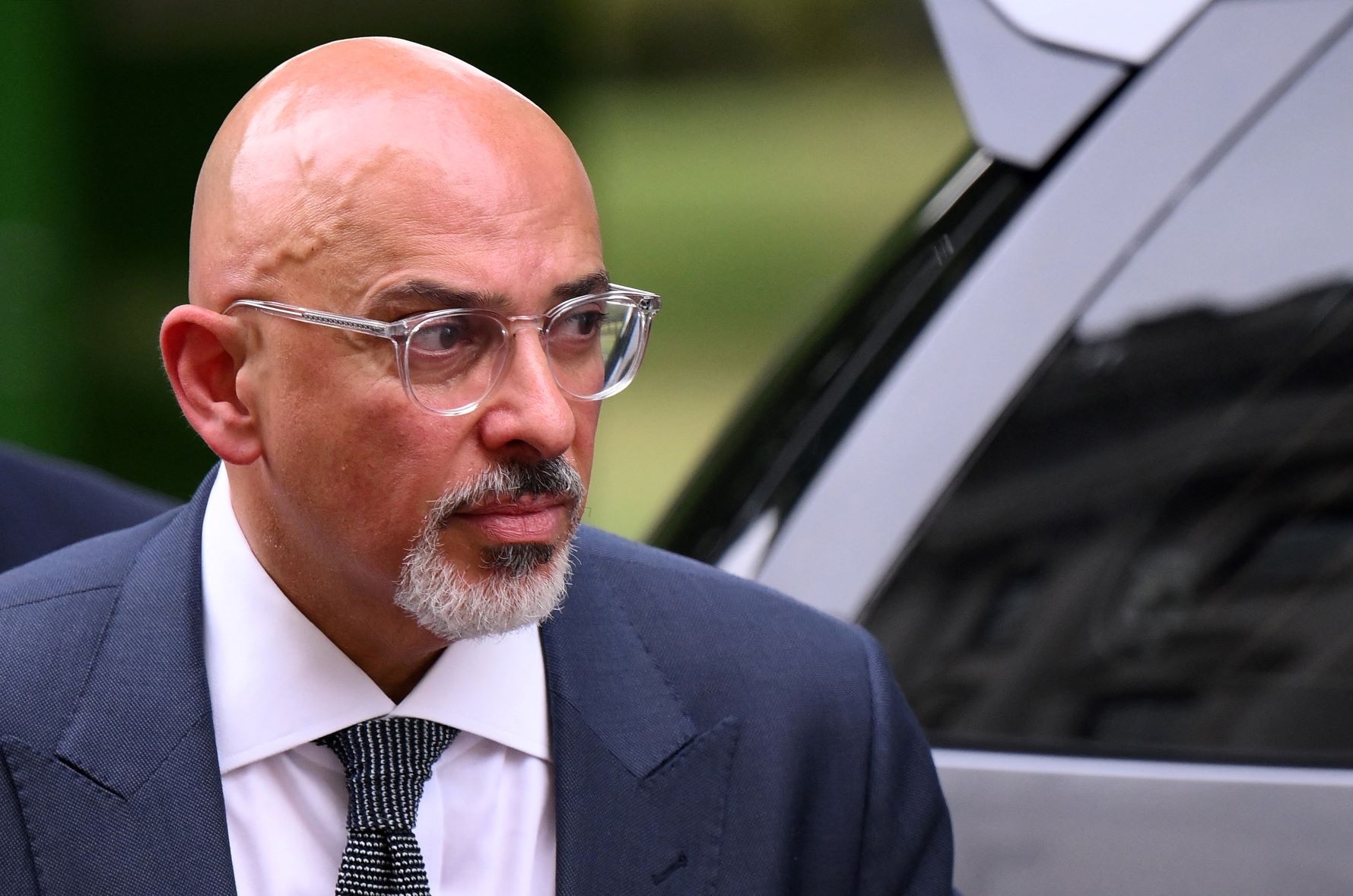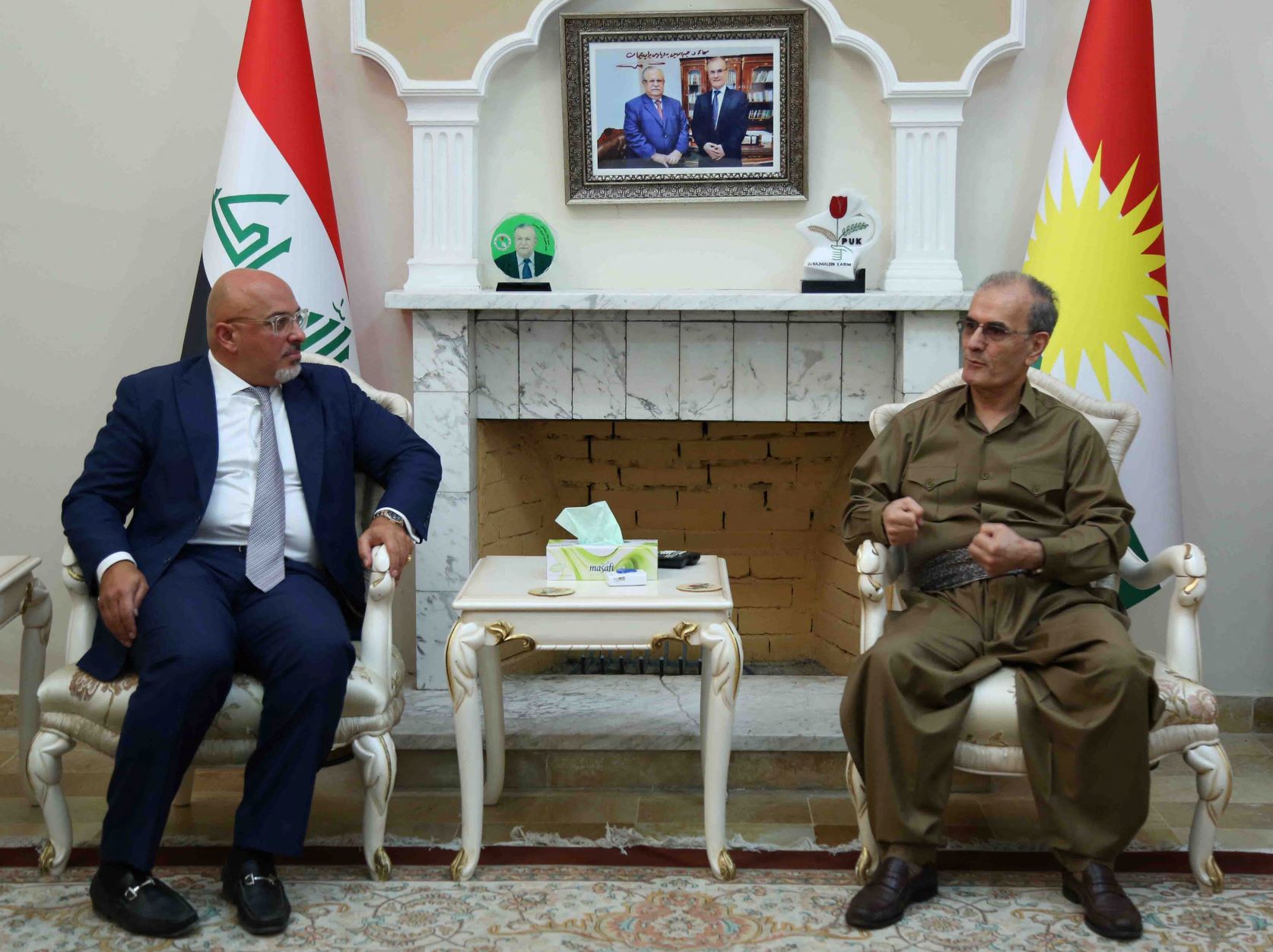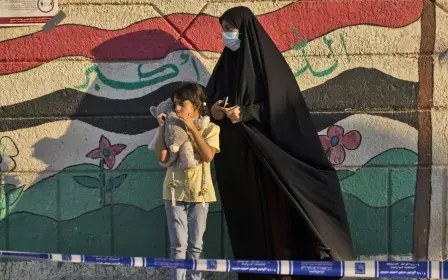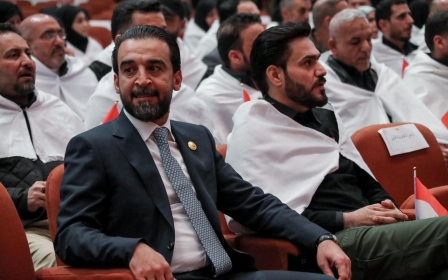Nadhim Zahawi: From Jeffrey Archer's 'Lemon Kurd' to UK chancellor

The British government has been thrown into crisis after the resignation of Chancellor of the Exchequer Rishi Sunak and Health Secretary Sajid Javid.
The high-profile resignations have been seen by many as evidence that Conservative Prime Minister Boris Johnson could soon be on his way out, with speculation rising over the possibility of his resigning or calling a snap general election in the coming days.
Parachuted into the job of chancellor - probably the most important role in government after prime minister - is Nadhim Zahawi, the outgoing education secretary.
Zahawi, an Iraqi Kurd, is one of the country's richest MPs and faces the unenviable task of steering the country through a cost of living crisis that has squeezed millions of people in the UK, though it is also possible that his tenure could be very short-lived.
Nevertheless, his appointment marks the highest position any Middle East-born politician has yet achieved in the UK government.
New MEE newsletter: Jerusalem Dispatch
Sign up to get the latest insights and analysis on Israel-Palestine, alongside Turkey Unpacked and other MEE newsletters
Money, money, money
Zahawi was born in 1967 in Baghdad. At the age of nine his family fled the country for the UK, fearing repression by the Baath Party, which seized control of Iraq the year after his birth.
He would go on to be a public advocate for the rights of other Kurds fleeing Saddam Hussein's Iraq, although he has also defended the government's harsh policies toward refugees.
In 1991, he was involved in a highly controversial project by Conservative politician Jeffrey Archer to raise money for Kurdish refugees through a music concert called Simple Truth.
Archer - who nicknamed Zahawi "Lemon Kurd" - claimed that £57m ($68m) was raised through the project, but refugee groups claimed they saw very little of the money. Archer would later be jailed for perjury and perverting the course of justice in 2001.
Zahawi managed to survive his association with Archer and continued to support pro-Kurdish causes. After the overthrow of Saddam in 2003, he developed links with the Iraqi government and the semi-autonomous Kurdistan Regional Government (KRG).
In 2015, while at the time co-chair of the All-Party Parliamentary Group (APPG) on Kurdistan, he took a job at petroleum company Gulf Keystone.
The job at the company, which operates the Shaikan oil field in Iraq's Kurdistan region, proved highly lucrative for Zahawi: in November 2021 it was reported he had earned £1.3m from the role, but had used a parliamentary loophole to keep his earnings secret.
A report by the Daily Mirror also found that Gulf Keystone had funded the secretariat of the APPG, which provided five trips to the region between 2011 and 2015 for Zahawi.
Gulf Keystone has also been accused of involvement in corruption in the KRG.
According to High Court papers reported by the Organised Crime and Corruption Reporting Project (OCCRP), Gulf Keystone secured the Shaikan oil field through a secret deal involving kickbacks to a company owned by a senior politician in the Kurdistan Democratic Party (KDP), the KRG's ruling party.
Although the corruption allegations took place before Zahawi came on board, the controversy has lingered around the company, which Zahawi resigned from in 2018 before being appointed education minister.
'A refugee who couldn't speak English'
Much has been made of Zahawi's background and his rise from refugee to one of the most powerful men in the country.
Upon his appointment, Culture Secretary Nadine Dorries tweeted that Zahawi had "arrived in the UK as a refugee who couldn't speak English" and congratulated him on his new role.
Many, however, were keen to point out that the British government of which Zahawi is a member has been very hostile to more recent Iraqi Kurdish refugees.
Under a policy introduced in April, asylum seekers who arrived in the UK by what the government deems "illegal" means are set to be sent by plane to Rwanda on a one-way charter flight.
The policy has been denounced by human rights groups and the first attempt to deport asylum seekers was blocked following legal challenges, including one at the European Court of Human Rights.
Kurdish refugees, mainly from Iraq, have made up a large part of those seeking asylum in the UK and the majority of those who were set to be sent to Rwanda.
When grilled about whether his own family would have coped with being sent to Rwanda had they come to the UK in 2022 rather than 1976, he said his family had come "legally" to the country and claimed that Iraqi Kurdish refugees were the victims of criminal "gangs".
"My family fled directly from Iraq to a safe country, the United Kingdom, and I'm very proud of that," he told Sky News last month, in response to a question about the apparent double standard.
"But to actually try and conflate or argue that we're somehow not proud of our record on whether it's immigration, or asylum and refuge for the people who are in most need, then I'm afraid I respectfully disagree with you."
A poisoned chalice?
In his resignation letter on Tuesday, Sunak claimed he had quit the government because his and Johnson's approach to the economy had been "fundamentally too different".
A staunch advocate of neoliberal economics, Sunak had been known for some time to be itching to impose austerity policies on the UK following the high levels of borrowing and spending that occured during the Covid-19 pandemic.
Johnson, on the other hand, has developed a reputation for being willing to spend money to win supporters (by Conservative standards anyway).
A number of reports have suggested that Zahawi's approach is more in line with Johnson's and, with Zahawi set to lead a conference on the cost of living next week, there are suspicions that they may be set to announce tax cuts in a bid to win popular support back.
But with resignations continuing on Wednesday and ongoing predictions of Johnson's imminent political demise, there may not be much time for Zahawi to flex his economic muscles before he finds himself shunted out of the role.
Middle East Eye delivers independent and unrivalled coverage and analysis of the Middle East, North Africa and beyond. To learn more about republishing this content and the associated fees, please fill out this form. More about MEE can be found here.






